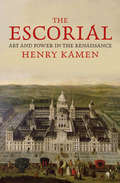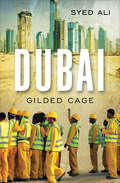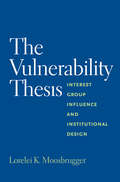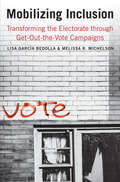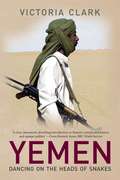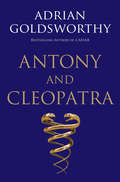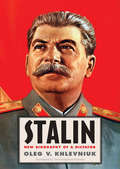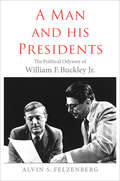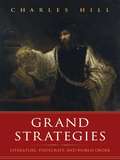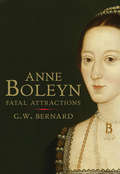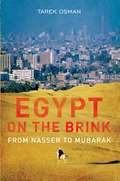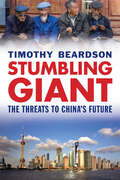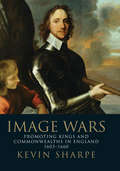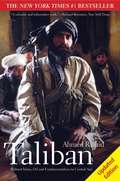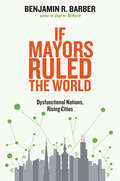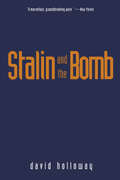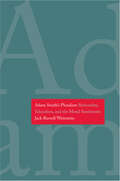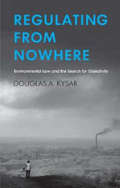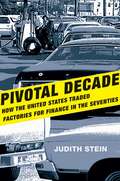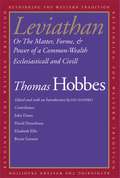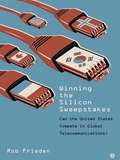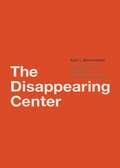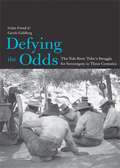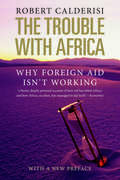- Table View
- List View
Andrew Marvell
by Nigel SmithThe latest edition to theLongman Annotated English Poetsseries is a complete works of the seventeenth century poet, Andrew Marvell. Marvell's poetry is renowned for its irony, subtlety and allusiveness and Nigel Smith shows how such literary qualities were developed and the various ways in which the complexity of meanings may be interpreted. The aim of this book is to present through commentary and annotation, a full historical and literary context to Marvell's poetry and it does so in its comprehensive and accurately balanced scholarship.
The Escorial
by Henry KamenFew buildings have played so central a role in Spain's history as the monastery-palace of San Lorenzo del Escorial. Colossal in size and imposing--even forbidding--in appearance, the Escorial has invited and defied description for four centuries. Part palace, part monastery, part mausoleum, it has also served as a shrine, a school, a repository for thousands of relics, and one of the greatest libraries of its time. Constructed over the course of more than twenty years, the Escorial challenged and provoked, becoming for some a symbol of superstition and oppression, for others a "wonder of the world. " Now a World Heritage Site, it is visited by thousands of travelers every year. In this intriguing study, Henry Kamen looks at the circumstances that brought the young Philip II to commission construction of the Escorial in 1563. He explores Philip's motivation, the influence of his travels, the meaning of the design, and its place in Spanish culture. It represents a highly engaging narrative of the high point of Spanish imperial dominance, in which contemporary preoccupations with art, religion, and power are analyzed in the context of this remarkable building.
Dubai: Gilded Cage
by Syed AliThis revealing portrait of the famously wealthy Persian Gulf city investigates the human cost of its miraculous rise to global prominence. In less than two decades, Dubai has transformed itself from an obscure territory of the United Arab Emirates into a global center for business, tourism, and luxury living. With astonishing skyscrapers and tax-free incomes, its rulers have made Dubai into a playground for the global elite while skillfully downplaying its systemic human rights abuses and suppression of dissent. It is a fascinating case study in light-speed urban development, massive immigration, and vertiginous inequality. In Dubai: Gilded Cage, sociologist Syed Ali delves beneath the dazzling surface to analyze how—and at what cost—Dubai has achieved its success. Ali brings alive a society rigidly divided between expatriate Westerners enjoying opulent lifestyles on short-term work visas, native Emiratis who are largely passive observers, and workers from the developing world who provide the manual labor and domestic service needed to keep the emirate running, often at great personal cost. &“At last, a comprehensive expose of the economic and sexual exploitation that erected this utopia of greed. Syed Ali has seen the future in Dubai and it doesn&’t work.&” —Mike Davis, author of Planet of Slums
The Vulnerability Thesis
by Lorelei K. MoosbruggerWhere politics is dominated by two large parties, as in the United States, politicians should be relatively immune to the influence of small groups. Yet narrow interest groups often win private benefits against majority preferences and at great public expense. Why? The “vulnerability thesis” is that the electoral system is largely to blame, making politicians in two-party systems more vulnerable to interest group demands than politicians in multiparty systems. Political scientist Lorelei Moosbrugger ranks democracies on a continuum of political vulnerability and tests the thesis by examining agrochemical policy in Austria, Britain, Germany, Sweden, and the European Union.
Mobilizing Inclusion: Transforming the Electorate through Get-Out-the-Vote Campaigns
by Lisa Garcia Bedolla Melissa R. MichelsonWhich get-out-the-vote efforts actually succeed in ethnoracial communities—and why? Analyzing the results from hundreds of original experiments, the authors of this book offer a persuasive new theory to explain why some methods work while others don’t. Exploring and comparing a wide variety of efforts targeting ethnoracial voters, Lisa García Bedolla and Melissa R. Michelson present a new theoretical frame—the Social Cognition Model of voting, based on an individual’s sense of civic identity—for understanding get-out-the-vote effectiveness. Their book will serve as a useful guide for political practitioners, for it offers concrete strategies to employ in developing future mobilization efforts.
Yemen: Dancing on the Heads of Snakes
by Victoria ClarkYemen is the dark horse of the Middle East. Every so often it enters the headlines for one alarming reason or another--links with al-Qaeda, kidnapped Westerners, explosive population growth--then sinks into obscurity again. But, as Victoria Clark argues in this riveting book, we ignore Yemen at our peril. The poorest state in the Arab world, it is still dominated by its tribal makeup and has become a perfect breeding ground for insurgent and terrorist movements. Clark returns to the country where she was born to discover a perilously fragile state that deserves more of our understanding and attention. On a series of visits to Yemen between 2004 and 2009, she meets politicians, influential tribesmen, oil workers and jihadists as well as ordinary Yemenis. Untangling Yemen's history before examining the country's role in both al-Qaeda and the wider jihadist movement today, Clark presents a lively, clear, and up-to-date account of a little-known state whose chronic instability is increasingly engaging the general reader.
Antony and Cleopatra
by Adrian GoldsworthyThe acclaimed historian reveals the truth behind the myths of antiquity&’s legendary lovers in &“this thoughtful, deeply satisfying&” dual biography (Publishers Weekly, starred review). In Antony and Cleopatra, preeminent historian Adrian Goldsworthy goes beyond the romantic narratives of Shakespeare and Hollywood to create a nuanced and historically acute portrayal of his subjects. Set against the political backdrop of their time, he presents two lives lived at the center of profound social change. It is a narrative that crosses cultures and boundaries from ancient Greece and ancient Egypt to the Roman Empire. Drawing on his prodigious knowledge of the ancient world, and especially the period&’s military and political history, Goldsworthy creates a singular portrait of two iconic lovers who were, in his words, &“first and foremost political animals.&” With a close analysis of ancient sources and archaeological evidence, Goldsworthy explains why Cleopatra was often portrayed as an Egyptian, even though she was Greek, and argues that Antony had far less military experience than popular legend suggests. At the same time, Goldsworthy makes a persuasive case that Antony was a powerful Roman senator and political force in his own right. A story of love, politics, and ambition, Goldsworthy&’s Antony and Cleopatra delivers a compelling reassessment of a major episode in ancient history.
Stalin: New Biography of a Dictator (The\yale-hoover Series On Authoritarian Regimes Ser.)
by Oleg V. KhlevniukAn engrossing biography of the notorious Russian dictator by an author whose knowledge of Soviet-era archives far surpasses all others.Josef Stalin exercised supreme power in the Soviet Union from 1929 until his death in 1953. During that quarter-century, by Oleg Khlevniuk&’s estimate, he caused the imprisonment and execution of no fewer than a million Soviet citizens per year. Millions more were victims of famine directly resulting from Stalin&’s policies. What drove him toward such ruthlessness? This essential biography offers an unprecedented, fine-grained portrait of Stalin the man and dictator. Without mythologizing Stalin as either benevolent or an evil genius, Khlevniuk resolves numerous controversies about specific events in the dictator&’s life while assembling many hundreds of previously unknown letters, memos, reports, and diaries into a comprehensive, compelling narrative of a life that altered the course of world history. In brief, revealing prologues to each chapter, Khlevniuk takes his reader into Stalin&’s favorite dacha, where the innermost circle of Soviet leadership gathered as their vozhd lay dying. Chronological chapters then illuminate major themes: Stalin&’s childhood, his involvement in the Revolution and the early Bolshevik government under Lenin, his assumption of undivided power and mandate for industrialization and collectivization, the Terror, World War II, and the postwar period. At the book&’s conclusion, the author presents a cogent warning against nostalgia for the Stalinist era. &“This brilliant, authoritative, opinionated biography ranks as the best on Stalin in any language.&”—Martin McCauley East-West Review&“A historiographical and literary masterpiece.&”—Mark Edele, Australian Book Review&“A very digestible biography, yet one packed with revelations.&”—Paul E. Richardson, Russian Life Magazine
A Man and His Presidents: The Political Odyssey of William F. Buckley Jr.
by Alvin FelzenbergA new understanding of the man who changed the face of American politics William F. Buckley Jr. is widely regarded as the most influential American conservative writer, activist, and organizer in the postwar era. In this nuanced biography, Alvin Felzenberg sheds light on little-known aspects of Buckley’s career, including his role as back-channel adviser to policy makers, his intimate friendship with both Ronald and Nancy Reagan, his changing views on civil rights, and his break with George W. Bush over the Iraq War. Felzenberg demonstrates how Buckley conveyed his message across multiple platforms and drew upon his vast network of contacts, his personal charm, his extraordinary wit, and his celebrity status to move the center of political gravity in the United States closer to his point of view. Including many rarely seen photographs, this account of one of the most compelling personalities of American politics will appeal to conservatives, liberals, and even the apolitical.
Grand Strategies: Literature, Statecraft, and World Order
by Charles Hill"The international world of states and their modern system is a literary realm," writes Charles Hill in this powerful work on the practice of international relations. "It is where the greatest issues of the human condition are played out. " A distinguished lifelong diplomat and educator, Hill aims to revive the ancient tradition of statecraft as practiced by humane and broadly educated men and women. Through lucid and compelling discussions of classic literary works from Homer to Rushdie,Grand Strategiesrepresents a merger of literature and international relations, inspired by the conviction that "a grand strategist . . . needs to be immersed in classic texts from Sun Tzu to Thucydides to George Kennan, to gain real-world experience through internships in the realms of statecraft, and to bring this learning and experience to bear on contemporary issues. " This fascinating and engaging introduction to the basic concepts of the international order not only defines what it is to build a civil society through diplomacy, justice, and lawful governance but also describes how these ideas emerge from and reflect human nature.
Anne Boleyn
by G. W. BernardIn this groundbreaking new biography, G. W. Bernard offers a fresh portrait of one of England's most captivating queens. Through a wide-ranging forensic examination of sixteenth-century sources, Bernard reconsiders Boleyn's girlhood, her experience at the French court, the nature of her relationship with Henry, and the authenticity of her evangelical sympathies. He depicts Anne Boleyn as a captivating, intelligent, and highly sexual woman whose attractions Henry resisted for years until marriage could ensure legitimacy for their offspring. He shows that it was Henry, not Anne, who developed the ideas that led to the break with Rome. And, most radically, he argues that the allegations of adultery that led to Anne's execution in the Tower could be close to the truth.
Egypt on the Brink: From Nasser to Mubarak
by Tarek OsmanFamous until the 1950s for its religious pluralism and extraordinary cultural heritage, Egypt is now seen as an increasingly repressive and divided land, home of the Muslim Brotherhood and an opaque regime headed by the aging President Mubarak. In this immensely readable and thoroughly researched book, Tarek Osman explores what has happened to the biggest Arab nation since President Nasser took control of the country in 1954. He examines Egypt's central role in the development of the two crucial movements of the period, Arab nationalism and radical Islam; the increasingly contentious relationship between Muslims and Christians; and perhaps most important of all, the rift between the cosmopolitan elite and the mass of the undereducated and underemployed population, more than half of whom are aged under thirty. This is an essential guide to one of the Middle East's most important but least understood states.
Stumbling Giant: The Threats to China's Future
by Timothy Beardson“A thoughtful reconsideration of China’s actual place in the new world order, based on reality rather than fanciful speculation.” —Kirkus ReviewsCan anything prevent China surpassing the United States and becoming the world’s top superpower? While predictions that China’s rise to global supremacy is a near-certainty have resulted in this belief becoming almost conventional wisdom, this book boldly counters such widely held assumptions. Investment strategist Timothy Beardson brings to light the daunting array of challenges that today confront China, as well as the inadequacy of the policy responses. Threats to China come on many fronts, Beardson shows, and by their number and sheer weight these problems will thwart any ambition to become the world’s “Number One power.”Drawing on extensive research and experience living and working in Asia over the last 35 years, the author spells out China’s situation: an inexorable demographic future of a shrinking labor force, relentless aging, extreme gender disparity, and even a falling population. Also, the nation faces social instability, a devastated environment, a predominantly low-tech economy with inadequate innovation, the absence of an effective welfare safety net, an ossified governance structure, and radical Islam lurking at the borders. Beardson’s nuanced, firsthand look at China acknowledges its historic achievements while tempering predictions of its imminent hegemony with a no-nonsense dose of reality.
Image Wars: Kings and Commonwealths in England, 1603-1660
by Kevin SharpeSpin and photo opportunities may appear to have emerged onto the political scene only recently, but in fact image and its manipulation have always been vital to the authority of rulers. This book, the second in Kevin Sharpe's trilogy exploring image, power, and communication in early modern England, examines its importance during the turbulent seventeenth century. From the coronation of James I to the end of Cromwell's protectorate, Sharpe considers how royalists and parliamentarians--often using the same vocabularies--sought to manage their public image through words, pictures, and performances in order to win support and secure and enhance their authority.
Taliban: Islam, Oil, and the New Great Game in Central Asia (2nd Edition)
by Ahmed RashidA new, revised edition of the universally acclaimed and best-selling account of the Islamic fundamentalist Taliban movement - the most radical and extreme Islamic movement the world has seen. '[An] excellent study which . . . has now sold more than 750,000 copies in [22] languages.' - Financial Times 'It took our political classes an unconscionable time to wake up to the importance of Ahmed Rashid's definitive study of the Taliban. The book has been a phenomenal success.' - The Independent 'Read this remarkable book and the bewildering complexity of Afghan politics and the deadly over-spill of chaos, narcotics and sectarian violence into the surrounding region will become clear.' - Sunday Times 'Ahmed Rashid's book describes the stuff that Bond [films] are made of. Warring tribes, clashing empires, fanatics with dreams of world domination, violence and sex . . . If anyone understands the place Rashid does.' - The Observer 'The book they are all reading.' - The Guardian
If Mayors Ruled the World
by Benjamin R. BarberIn the face of the most perilous challenges of our time-climate change, terrorism, poverty, and trafficking of drugs, guns, and people-the nations of the world seem paralyzed. The problems are too big, too interdependent, too divisive for the nation-state. Is the nation-state, once democracy's best hope, today democratically dysfunctional? Obsolete? The answer, says Benjamin Barber in this highly provocative and original book, is yes. Cities and the mayors who run them can do and are doing a better job. Barber cites the unique qualities cities worldwide share: pragmatism, civic trust, participation, indifference to borders and sovereignty, and a democratic penchant for networking, creativity, innovation, and cooperation. He demonstrates how city mayors, singly and jointly, are responding to transnational problems more effectively than nation-states mired in ideological infighting and sovereign rivalries. Featuring profiles of a dozen mayors around the world-courageous, eccentric, or both at once-If Mayors Ruled the World presents a compelling new vision of governance for the coming century. Barber makes a persuasive case that the city is democracy's best hope in a globalizing world, and great mayors are already proving that this is so.
Stalin and the Bomb: The Soviet Union And Atomic Energy, 1939-1956
by David HollowayThe classic and &“utterly engrossing&” study of Stalin&’s pursuit of a nuclear bomb during the Cold War by the renowned political scientist and historian (Foreign Affairs).For forty years the U.S.-Russian nuclear arms race dominated world politics, yet the Soviet nuclear establishment was shrouded in secrecy. Then, shortly after the collapse of the Soviet Union, David Holloway pulled back the Iron Curtain with his &“marvelous, groundbreaking study&” Stalin and the Bomb (The New Yorker).How did the Soviet Union build its atomic and hydrogen bombs? What role did espionage play? How did the American atomic monopoly affect Stalin's foreign policy? What was the relationship between Soviet nuclear scientists and the country's political leaders? David Holloway answers these questions by tracing the dramatic story of Soviet nuclear policy from developments in physics in the 1920s to the testing of the hydrogen bomb and the emergence of nuclear deterrence in the mid-1950s. This magisterial history throws light on Soviet policy at the height of the Cold War, illuminates a central element of the Stalinist system, and puts into perspective the tragic legacy of this program―environmental damage, a vast network of institutes and factories, and a huge stockpile of unwanted weapons.
Adam Smith's Pluralism
by Jack Russell WeinsteinIn this thought-provoking study, Jack Russell Weinstein suggests the foundations of liberalism can be found in the writings of Adam Smith (1723#150;1790), a pioneer of modern economic theory and a major figure in the Scottish Enlightenment. While offering an interpretive methodology for approaching Smith's two major works, The Theory of Moral Sentiments and The Wealth of Nations, Weinstein argues against the libertarian interpretation of Smith, emphasizing his philosophies of education and rationality. Weinstein also demonstrates that Smith should be recognized for a prescient theory of pluralism that prefigures current theories of cultural diversity.
Regulating from Nowhere: Environmental Law and the Search for Objectivity
by Douglas A. KysarDrawing insight from a diverse array of sources -- including moral philosophy, political theory, cognitive psychology, ecology, and science and technology studies -- Douglas Kysar offers a new theoretical basis for understanding environmental law and policy. He exposes a critical flaw in the dominant policy paradigm of risk assessment and cost-benefit analysis, which asks policymakers to, in essence, "regulate from nowhere. " As Kysar shows, such an objectivist stance fails to adequately motivate ethical engagement with the most pressing and challenging aspects of environmental law and policy, which concern how we relate to future generations, foreign nations, and other forms of life. Indeed, world governments struggle to address climate change and other pressing environmental issues in large part because dominant methods of policy analysis obscure the central reasons for acting to ensure environmental sustainability. To compensate for these shortcomings, Kysar first offers a novel defense of the precautionary principle and other commonly misunderstood features of environmental law and policy. He then concludes by advocating a movement toward environmental constitutionalism in which the ability of life to flourish is always regarded as a luxury wecanafford.
Pivotal Decade: How the United States Traded Factories for Finance in the Seventies
by Judith SteinIn this fascinating new history, Judith Stein argues that in order to understand our current economic crisis we need to look back to the 1970s and the end of the age of the factory--the era of postwar liberalism, created by the New Deal, whose practices, high wages, and regulated capital produced both robust economic growth and greater income equality. When high oil prices and economic competition from Japan and Germany battered the American economy, new policies--both international and domestic--became necessary. But war was waged against inflation, rather than against unemployment, and the government promoted a balanced budget instead of growth. This, says Stein, marked the beginning of the age of finance and subsequent deregulation, free trade, low taxation, and weak unions that has fostered inequality and now the worst recession in sixty years. Drawing on extensive archival research and covering the economic, intellectual, political, and labor history of the decade, Stein provides a wealth of information on the 1970s. She also shows that to restore prosperity today, America needs a new model: more factories and fewer financial houses.
Leviathan Or The Matter, Forme, & Power of a Common-Wealth Ecclesiasticall and Civill
by Thomas HobbesWritten by Thomas Hobbes and first published in 1651,Leviathanis widely considered the greatest work of political philosophy ever composed in the English language. Hobbes's central argument--that human beings are first and foremost concerned with their own fears and desires, and that they must relinquish basic freedoms in order to maintain a peaceful society--has found new adherents and critics in every generation. This new edition, which uses modern text and relies on large-sheet copies from the 1651 Head version, includes interpretive essays by four leading Hobbes scholars: John Dunn, David Dyzenhaus, Elisabeth Ellis, and Bryan Garsten. Taken together with Ian Shapiro's wide-ranging introduction, they provide fresh and varied interpretations ofLeviathanfor our time.
Winning the Silicon Sweepstakes: Can the United States Compete in Global Telecommunications?
by Rob FriedenIn this timely book, Rob Frieden points out the many ways the United States has fallen behind other countries in telecommunications and broadband development. Despite the appearance of robust competition and entrepreneurism in U. S. markets, there is very little of either. Because of an inattentive Congress and a misguided FCC unwilling to confront real problems, industry incumbents can earn healthy profits while keeping the United States in the backwaters of Internet-based information, communication, and entertainment markets. At every turn, regulators have tipped the scales in favor of large established companies, creating an environment that stifles innovation. As a consequence, Americans are stuck with relatively slow connectivity and with equipment that lacks features that have been staples in other countries for years. In telecommunications, the United States is a little like a third world country that is developing under crushing bureaucracies without recognizing that the rest of the world has passed it by. Professor Frieden not only shows how failure can intrude on the ability of the United States to compete but suggests how to restore its competitiveness.
The Disappearing Center
by Alan I. AbramowitzRenowned political scientist Alan I. Abramowitz presents a groundbreaking argument that the most important divide in American politics is not between left and right but rather between citizens who are politically engaged and those who are not. It is the engaged members of the public, he argues, who most closely reflect the ideals of democratic citizenship--but this is also the group that is most polarized. Polarization at the highest levels of government, therefore, is not a sign of elites' disconnection from the public but rather of their responsiveness to the more politically engaged parts of it. Though polarization is often assumed to be detrimental to democracy, Abramowitz concludes that by presenting voters with clear choices, polarization can serve to increase the public's interest and participation in politics and strengthen electoral accountability.
Defying the Odds: The Tule River Tribe's Struggle for Sovereignty in Three Centuries
by Gelya Frank Carole GoldbergAn anthropologist and a legal scholar combine expertise in this innovative book, deploying the history of one California tribe--the Tule River Tribe--in a definitive study of indigenous sovereignty from earliest contact through the current Indian gaming era.
Trouble with Africa
by Robert CalderisiCalderisi shows that Africa has steadily lost markets by its own mismanagement; that corrupt, dictatorial regimes have hobbled agriculture, enterprise and foreign investment; that African family values and fatalism are more destructive than tribalism; and that African leaders prey intentionally on Western guilt. Calderisi exposes the shortcomings and indulgences of foreign aid and debt relief, and proposes his own radical solutions. Drawing on many years of first hand experience, The Trouble with Africa highlights issues which have been ignored by Africa's leaders but have long worried ordinary Africans, diplomats, academics, business leaders, aid workers, volunteers and missionaries. It ripples with stories which only someone who has talked directly to African farmers--and heads of state--could recount. Calderisi's aim is to move beyond the hand-wringing and finger-pointing which dominates most discussions of Africa. Instead, he suggests concrete steps which Africans and the world can take to unlock the talent and enterprise of the continent. 'boisterous, entertaining and highly accessible. [Calderisi] challenges the shibboleths of the aid industry with courage, compassion and humour. A timely and bracing read.'--Michela Wrong, Author of In the Footsteps of Mr. Kurtz'A timely, intriguing and provocative book. The author's love of the continent shines through every line, yet his bold suggestions will raise eyebrows and provoke debate.' -- Baroness Lynda Chalker, former UK Secretary of State for Overseas Development'a blast of fresh air over a continent that has for decades been suffocating under a blanket of well-meant concern, ineffectual at best, and harmful at worst'--Michael Holman, former Africa editor, Financial Times

